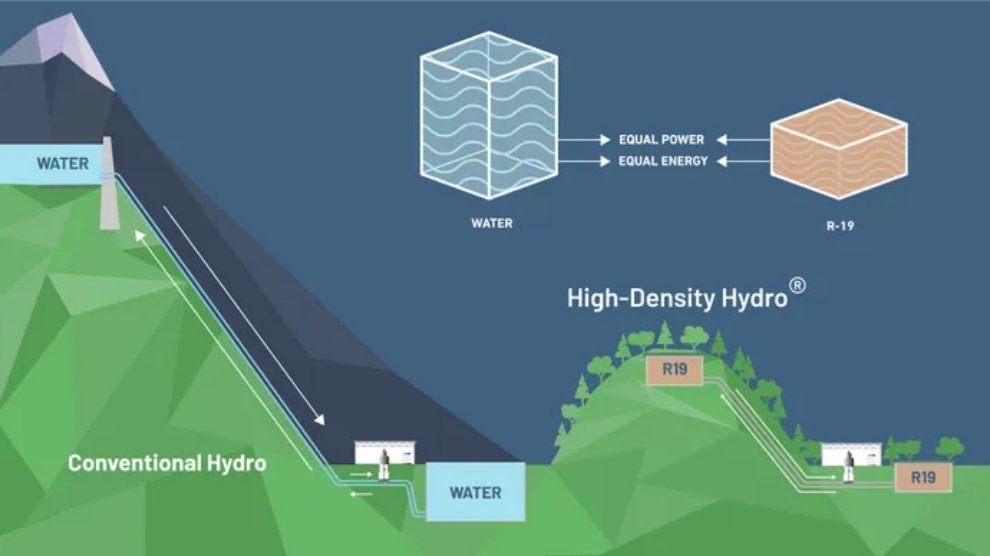Thousands of hills across Britain could be turned into renewable batteries energy with a new hydroelectric system "high density" buried underground.

It was developed by British start-up RheEnergise. The system uses a modern technology in pumped hydroelectric storage, a centuries-old technology that accounts for 95% of today's energy storage capacity.
Pumped hydroelectric storage uses excess electricity to pump water to a reservoir located at a higher level. Later when the energy is needed it lets the water run downhill over turbines, producing the electricity.

RheEnergise uses no water at all, but a proprietary high-density liquid. It's called R-19 and it's 2,5 times denser than water. The company does not say what the liquid contains but it is made of "extremely cheap" materials and is not toxic to the environment.
The benefit of using this liquid instead of water is that it produces the same amount of electricity from a 40% change in elevation, using reservoirs 40% the size — hills and underground reservoirs instead of mountains and huge dams. This means it is one smaller system that can be deployed faster, in more locations and at less cost, or at least that's the idea.
The high-density hydroelectric system will pump R-19 uphill to underground storage tanks larger than an Olympic-sized swimming pool, then release the liquid on demand. The projects will generate between 5 and 100 MW of power and will be able to operate with vertical heights of 100 meters or less.
The company estimates there are 6.500 potential sites in the UK alone and that its projects will be cheaper than equivalent lithium-ion batteries.




